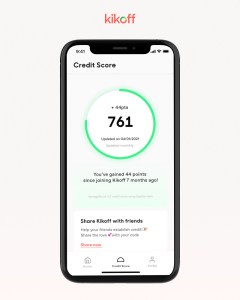E-commerce marketplaces continue to play a major role in how consumers buy goods online and how retailers show off and sell goods to those consumers, accounting globally for 47% of all e-commerce sales. But today, one of the startups that has built technology to help retailers build and run more direct relationships — by way of zippy websites of their own — is announcing a big round of growth funding, a sign that the marketplace model is not for everyone, and that those catering to those retailers are finding traction.
Shogun — a platform to help e-commerce businesses of all sizes built on platforms like Shopify, Magento and BigCommerce easily design and run their own responsive storefronts — has raised $67.5 million. This Series C values Shogun at $575 million, a “nice markup” on its previous valuation, said Finbarr Taylor, the company’s co-founder and CEO, in an interview.
He added that the capital will be used both to continue building out its two main products — Page Builder, a drag-and-drop page builder for Shopify merchants; and Shogun Frontend, an end-to-end headless commerce solution — as well as business development, and to build out new tech, specifically in areas like first-party data and personalization.
“We want to help companies build a destination where they can control the experience,” he said, comparing it to the physical world and the difference between Nike shoes sold at the brand’s own store versus at a big retailer like Walmart. “In a Nike store you can design an experience. In Walmart you cannot.”
Led by Insight Partners — a new investor in the startup — it also included Initialized Capital, Accel and VMG Partners. Accel led Shogun’s previous round — a $35 million Series B — announced less than a year ago, in October 2020. The startup has now raised $114.5 million.
The hike in valuation, and the rapid succession of its fundraises, are two signs of how Shogun has been doing in the last eight months — a time when e-commerce has continued to perform strongly in the wake of the Covid-19 pandemic. Another is the company’s actual growth based on the idea of making front-end tools that used to be cost-prohibitive into something affordable for even the smallest merchant.
One of the selling points for Shogun up to now has been that pages and sites built on its platform run fast: a very key detail in the world of e-commerce where shopping cart abandonment is rife and often hinges on how long people have to wait for something to load.
Page Builder — the mass-market, drag-and-drop site builder for those creating sites on top of Shopify — is now used by around 20,000 business, Taylor said, ranging from small startups through to Fortune 500 companies, with customers including brands like K-Swiss, Leesa, Rumpl, BeardBrand, MVMT and Fila. He said that merchants collectively are seeing GMV (gross merchandise value, or total amount sold) in the “billions of dollars” through their sites.
(For a point of reference, Shogun told me it had 15,000 customers back in October; growing 5,000 in the last eight months is the same amount of growth as last year.)
Shogun’s newer product, Frontend, designed for mid-market to enterprise customers and positioned as a “headless” solution aimed more at web designers and others building more customized experiences, now has hundreds of customers and grew . “Apple’s site is beautiful, but it cost millions to make,” Taylor said. “We want anyone to be able to build those exceptional e-commerce experiences.” Frontend has grown 10x in the last year, Taylor said.
GMV across all of Shogun’s business grew by 255% in the last two years.
The rise of services like Shogun’s underscores a swing we have seen among e-commerce companies that are looking for a more autonomy and control in how they engage with customers. Sites like Amazon have long been seen as a way to tap into a large population of shoppers, as well as solid fulfillment and shipping infrastructure to store, package, distribute and deliver products.
There has even been a sharp rise in “roll-up” plays like Thrasio to help consolidate merchants on these platforms to leverage even better economies of scale on details like marketing, customer analytics and manufacturing, which marketplaces like Amazon do not (yet?) handle.
But none of that still replaces the ability to set your own destiny.
Now, the rise of services like Shopify, BigCommerce and Spryker (also backed by Insight Partners) to help manage the backend; Stripe, PayPal and others to manage payments; and others like ShipBob to manage the logistics, have made it increasingly less difficult to build and run your own online experience. That takes on a stronger priority as your business grows, but even for smaller merchants, the idea of controlling your own customer experience is a compelling one.
Services like Shogun (and others like fit into that latter trend, such as Squarespace or Wix but also others like Duda), which give merchants the tools to build their own e-commerce experiences as they would like them to look, are the front ends for that strategy. Opting to take the “headless” commerce approach, apparently, is an increasing trend.
And that individualism is also where Shogun plans to double down and build more tools for its users, Taylor said.
“It’s all about direct relationships with customers,” he said, pointing out that newer changes in privacy regulation and cookies going away mean retailers can no longer rely on third-party platforms as they used to. “It’s about first party relationships. The future is way more personalized shopping online.”
That vision is also what interested investors.
“Our investment in Shogun underscores the market’s desire to see headless commerce become merchant-focused,” said Matt Gatto, managing director at Insight Ventures, in a statement. “More brands want to be able to build headless progressive web apps in a low-code environment. Those on the forefront of e-commerce want to enable web teams to build truly unique, memorable shopping experiences. Shogun is well positioned to make flexible frontends accessible to brands in a whole new way, and we’re excited to be a partner in this journey.”

from TechCrunch https://ift.tt/3ydT86R
Saqib Shah / Engadget:













